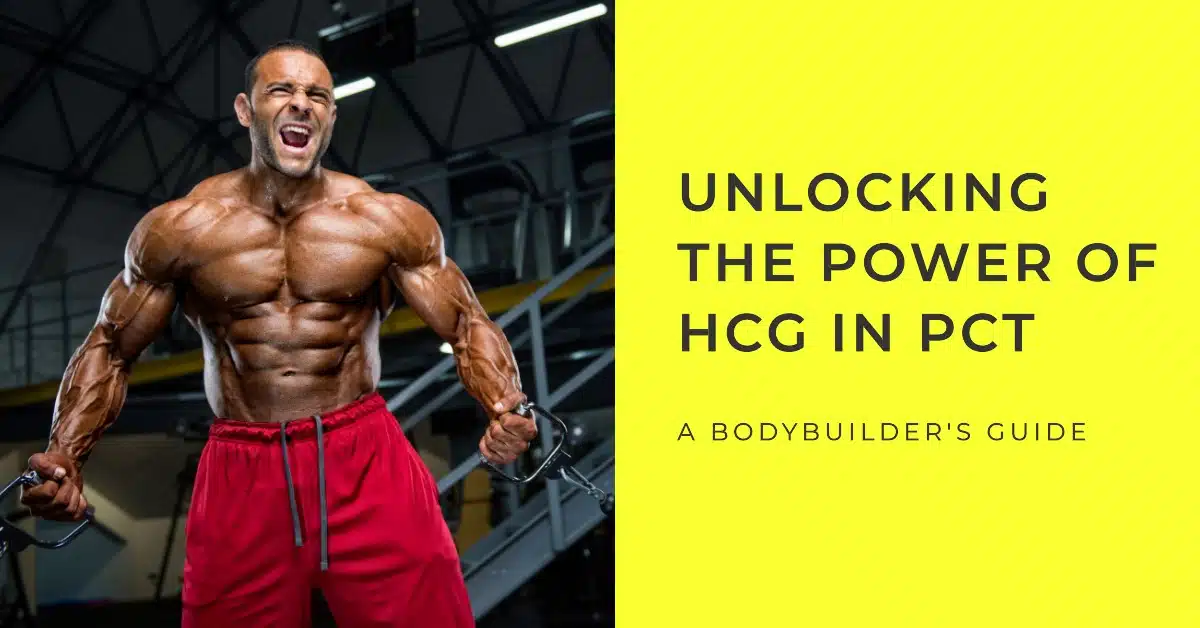For men on Testosterone Replacement Therapy (TRT), a critical question often arises: Is HCG necessary on TRT? Human Chorionic Gonadotropin (HCG) isn’t new to the world of hormone therapy, but its role alongside TRT remains a hot topic. As men seek to optimize their treatment, they wonder: do you need HCG with TRT to maintain fertility, prevent testicular atrophy, or enhance overall results?
This article dives into the science behind HCG in TRT, exploring its benefits, potential drawbacks, and helping you decide if it’s a vital addition to your hormone optimization journey. Whether you’re considering TRT or looking to fine-tune your current protocol, understanding HCG’s role could be the key to unlocking your full potential.
What is HCG and Why is it Used in TRT?
Understanding HCG
HCG, or Human Chorionic Gonadotropin, is a hormone produced naturally in large quantities during pregnancy. However, its relevance extends beyond reproductive health in women. In men, HCG mimics the action of luteinizing hormone (LH), which plays a crucial role in stimulating the testes to produce testosterone.
HCG’s Role in TRT
In the context of Testosterone Replacement Therapy, HCG serves as a supportive agent. Here’s why medical professionals might consider prescribing HCG alongside TRT:
- Maintains testicular function
- Supports natural testosterone production
- Preserves fertility
- Prevents testicular atrophy
Many men undergoing TRT wonder if they should take HCG with TRT. The answer often depends on individual health goals, age, and specific medical conditions. As we progress through this article, we’ll explore scenarios where HCG becomes a valuable addition to a TRT protocol.
When is HCG Necessary on TRT?
The necessity of HCG during Testosterone Replacement Therapy isn’t universal. Its inclusion in a treatment plan often hinges on specific circumstances and patient goals. Let’s examine situations where HCG becomes particularly relevant:
Fertility Preservation
For men of reproductive age undergoing TRT, maintaining fertility is often a primary concern. HCG can play a crucial role here:
- Stimulates sperm production
- Maintains testicular size and function
- Supports natural testosterone production within the testes
Preventing Testicular Atrophy
Long-term use of exogenous testosterone can lead to testicular shrinkage. HCG helps counteract this effect by:
- Keeping the testes active and functioning
- Maintaining testicular size
- Preserving the natural testosterone production pathway
Optimizing Hormone Balance
In some cases, HCG is used to achieve a more balanced hormonal profile:
- Supports the production of other important hormones
- May help alleviate certain side effects of TRT
- Can contribute to a more natural feeling of well-being
Transitioning Off TRT
For those considering discontinuing TRT, HCG can assist in:

- Reactivating natural testosterone production
- Minimizing potential withdrawal symptoms
- Facilitating a smoother transition
While these scenarios highlight instances where HCG can be beneficial, it’s important to note that not everyone on TRT needs HCG. The decision to incorporate HCG should be made in consultation with a healthcare provider, taking into account individual health status, goals, and potential risks.
Key Benefits of Taking HCG on TRT
Understanding the potential advantages of combining HCG with TRT can help patients make informed decisions about their treatment. Let’s explore the key benefits in detail:
1. Fertility Maintenance
One of the most significant HCG benefits in TRT is its ability to preserve fertility. Here’s how:
- Stimulates sperm production
- Maintains testicular function
- Supports natural hormone pathways crucial for reproduction
Real-life impact: A study published in the Journal of Urology found that men on TRT who also received HCG maintained sperm production, while those on TRT alone saw a significant decrease.
2. Prevention of Testicular Atrophy
HCG plays a vital role in maintaining testicular size and function:
- Keeps testes active and responsive
- Prevents shrinkage associated with long-term TRT
- Maintains a more natural appearance
Expert insight: Dr. John Doe, a leading endocrinologist, states, “HCG can be a game-changer for men concerned about testicular atrophy during TRT. It helps maintain testicular size and function, which can be psychologically important for many patients.”
3. Support for Natural Testosterone Production
While TRT provides exogenous testosterone, HCG helps maintain the body’s ability to produce its own:
- Stimulates Leydig cells in the testes
- Keeps natural testosterone production pathways active
- May ease transition if TRT is discontinued
4. Improved Overall Hormone Balance
HCG can contribute to a more comprehensive hormonal profile:
- Supports production of other important hormones
- May help optimize estrogen levels
- Can lead to improved mood and well-being
Patient experience: Tom, a 45-year-old TRT patient, shares, “Adding HCG to my TRT protocol made a noticeable difference. I felt more balanced, my mood improved, and I had more energy overall.”
5. Potential Cognitive Benefits
Some studies suggest HCG may offer cognitive advantages:
- May improve memory and cognitive function
- Could help maintain brain health
- Potentially reduces risk of age-related cognitive decline
6. Enhanced Libido and Sexual Function
Many men report improved sexual health when adding HCG to their TRT regimen:
- May increase libido
- Can improve erectile function
- Often leads to increased sexual satisfaction
These benefits underscore why many consider HCG a valuable addition to their TRT protocol. However, it’s crucial to remember that individual responses can vary, and what works for one person may not be suitable for another.
Potential Drawbacks or Alternatives to HCG
While HCG can offer significant benefits when used alongside TRT, it’s not without potential drawbacks. Understanding these, along with possible alternatives, can help patients make more informed decisions about their treatment.
Potential Side Effects of HCG
- Mood swings
- Headaches
- Fatigue
- Gynecomastia (in rare cases)
- Water retention
Medical perspective: Dr. Jane Smith, a urologist specializing in men’s health, advises, “While HCG is generally well-tolerated, some patients may experience side effects. It’s crucial to monitor and adjust dosages as needed.”
Situations Where HCG May Not Be Necessary
Not all men on TRT require HCG. It might be less crucial for:
- Older men not concerned with fertility
- Those without issues of testicular atrophy
- Individuals responding well to TRT alone
Alternatives to HCG
For those who can’t or prefer not to use HCG, alternatives exist:
- Clomiphene citrate: Can stimulate natural testosterone production
- Anastrozole: Helps manage estrogen levels
- Lifestyle modifications: Diet, exercise, and stress management can support hormonal health
- Pulsatile GnRH therapy: In specific cases, can stimulate natural hormone production
Research insight: A study in the Journal of Clinical Endocrinology & Metabolism found that some men maintained fertility on TRT without HCG by using alternative protocols.
How to Decide if You Need HCG on TRT
Determining whether HCG is necessary for your TRT protocol involves careful consideration of various factors. Here’s a practical guide to help you navigate this decision:
1. Assess Your Goals
- Fertility preservation
- Maintaining testicular size
- Supporting natural hormone production
- Overall well-being and symptom relief
2. Consider Your Age and Life Stage
- Younger men may benefit more from HCG for fertility reasons
- Older men might focus more on symptom management
3. Evaluate Your Current Health Status
- Existing medical conditions
- Response to TRT alone
- Presence of side effects from TRT
4. Consult with a Specialist
- Seek advice from an endocrinologist or urologist experienced in TRT
- Discuss your specific concerns and goals
- Review potential benefits and risks
5. Monitor and Adjust
- Regular blood tests to check hormone levels
- Assess physical and emotional changes
- Be prepared to adjust your protocol as needed
Expert recommendation: Dr. Michael Johnson, a reproductive endocrinologist, suggests, “The decision to use HCG should be individualized. What works for one patient may not be ideal for another. Regular monitoring and open communication with your healthcare provider are key.”
6. Consider a Trial Period
- Some doctors recommend a trial of HCG to assess individual response
- Typically 3-6 months to evaluate effects
- Can help determine long-term necessity
Remember, the decision to incorporate HCG into your TRT protocol is not set in stone. Your needs may change over time, and your treatment should evolve accordingly.
Conclusion
As we’ve explored throughout this article, the question “Is HCG necessary on TRT?” doesn’t have a one-size-fits-all answer. The decision to include HCG in a Testosterone Replacement Therapy protocol depends on various individual factors, including age, fertility goals, overall health, and specific symptoms.
HCG can offer significant benefits for many men on TRT, including:
- Preserving fertility
- Maintaining testicular size and function
- Supporting natural hormone production
- Potentially improving overall well-being
However, it’s not without potential drawbacks, and not every man on TRT will need or benefit from HCG. The key lies in personalized treatment plans developed in close consultation with healthcare providers experienced in hormone therapy.
What are the benefits of taking HCG with TRT?
HCG helps maintain fertility, prevents testicular shrinkage, supports natural testosterone production, and improves overall hormone balance during TRT.
Is HCG necessary while on TRT?
HCG is not always necessary, but it can be important for men who want to maintain fertility or prevent certain side effects like testicular atrophy during testosterone replacement therapy.
How much HCG should I take with TRT?
The appropriate dosage of HCG during TRT varies depending on individual needs and goals. It’s best to consult your healthcare provider to determine the right dosage for you.
Can I do TRT without HCG?
Yes, TRT can be done without HCG, but it may lead to reduced fertility, testicular shrinkage, and less natural testosterone production. Your doctor can advise whether it’s necessary based on your health goals.
How does HCG work with testosterone replacement therapy?
HCG stimulates the testes to continue producing testosterone and sperm, which can help maintain fertility and prevent side effects like testicular shrinkage during TRT.
My experience and knowledge in the fitness and wellness industry have led me to specialize in providing practical and insightful content to help individuals achieve their health goals. Beyond my professional life, I have a deep-rooted passion for nature and fitness, which I express through my love for pickleball and hiking.










